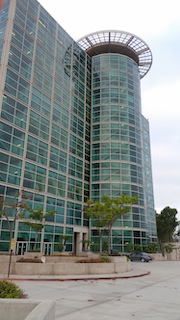We have had many clients tell us confidentially that while they may have committed the crime, there is no possible way the alleged witness to the crime could have seen what he or she claims as is written in the police report. Or our client will say his friend committed the crime and not him or her.
Our client will explain why this is so perhaps because he saw the alleged witness only as he was driving away and the witness was arriving at the scene, well after the crime took place, or that the witness left the scene by car minutes before the crime began or took place. The client may also know that the witness was distracted or looking at something else, i.e. a cell phone, at the time.
The Point of This Article: An eyewitness identification expert can provide valuable testimony concerning the reliability of an eyewitness identification of a suspect or even of an eyewitness description of the crime. The expert can tell the judge or jury what factors affect the clarity of memory and perception, often explaining that stress or cross-racial factors decrease the accuracy of an eyewitness’ perceptions and memory.
However, the witness told the police what was observed and due perhaps to confirmation bias (a readiness to confirm a suspicion), the client is arrested.
The client does not want to take the stand to testify why he knows the witness is lying, because to do so would only expose his conduct. This is when an eyewitness identification expert can be used at trial to challenge the eyewitness.
When and how can such an expert be used? In People v. McDonald (1984) 37 Cal.3d 351, 361, the California Supreme Court held that it was an abuse of discretion not to allow the testimony of an eyewitness identification expert under the facts of that case. However, the testimony of such an expert is limited to narrow circumstances: when eyewitness identification of the defendant is a key element of the prosecution case, but is not substantially corroborated by reliable evidence and the testimony is from a qualified expert. In this situation, while the decision whether to allow such an expert to testify is up to the judge’s discretion, it is usually error to exclude the testimony.
 Airport Courthouse
Airport Courthouse
The McDonald decision basically makes it obligatory or mandatory that a defense attorney move to permit the testimony of an eyewitness identification expert in appropriate cases. That expert should be able to testify on specific psychological factors shown by the record that could have affected the accuracy of the identification but are not likely to be fully known to or understood by the jury.
The expert also may be allowed by the judge to testify about empirical research that undermines common misconceptions about eyewitness identification, e.g., that the accuracy of a witness’ recollection increases with the witness’ certainty, that accuracy improves with stress, or that cross-racial factors are not significant. Of course, the expert is not allowed to testify to the accuracy or to the truth or falsity of the identification testimony.
The expert will likely want to testify also to the eyewitness’ testimony of how long ago the parties last saw each other (allegedly), any change in the appearance of the person being identified and the witness’ opportunity to observe the person at issue.
Defense counsel will want to thoroughly explore if the eyewitness has any motivation to lie, but be careful not to hammer home the apparent bias. It is far wiser to make such arguments strongly in closing to deprive the prosecutor the opportunity to have the witness explain away his motives as not being the dominant factor in why such testimony is reliable. We think it is better during the case in chief to address the technical, scientific reasons why a witness’ memory or perceptions may be inaccurate, by using such an expert, and then in closing, mention the emotional factors that may have caused the eyewitness to fabricate testimony.
For more information about eyewitness issues, please click on the following articles:
- Procedure for Identifying & Questioning Witnesses to a Crime
- Does a Witness or a Victim Have a Criminal Record?
- Witness Intimidation Can Make Admissible Otherwise Inadmissible Hearsay
Contact us.  Airport Courthouse
Airport Courthouse